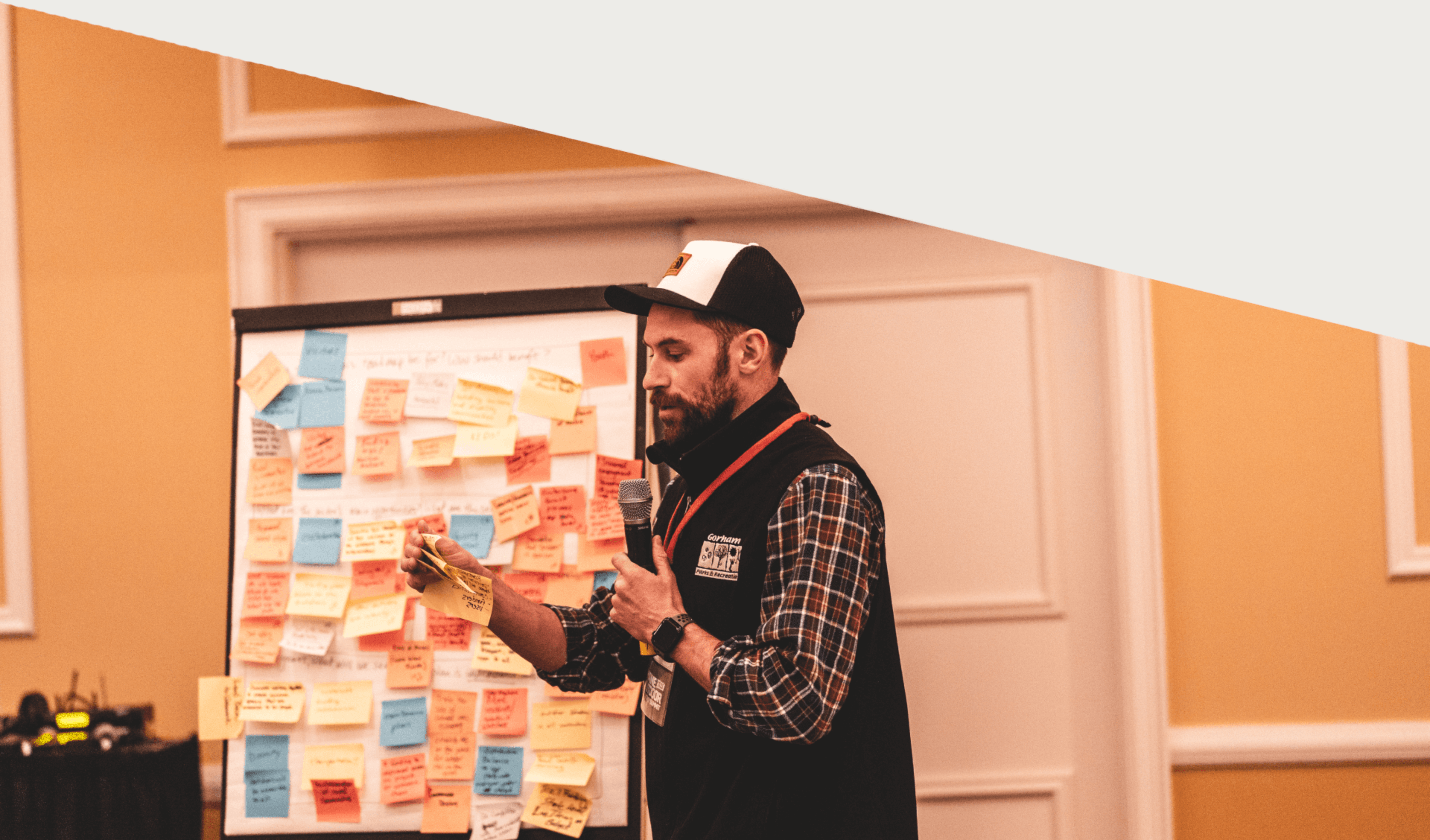
Project Updates
Roadmap Update May 2024


Trailblazer Roadmap - May 2024 Update
Posted 05/13/2024
About the planning process
We have conducted robust engagement with Mainers across the state. This community input is shaping the Roadmap’s strategies and recommendations. Engagement to date includes:
60+ interviews with outdoor sector leaders with over 60 individuals across the state representing a vast array of sectors, geographies, and communities.
8 focus groups with institutional partners to understand their unique challenges and assets to the outdoor recreation economy. Groups included the University of Maine, LL Bean, and agencies within the State of Maine.
6 virtual action-oriented build sessions each on a different theme that emerged through data analysis and community engagement with outdoor industry experts and enthusiasts to date. Overall, 115 people registered from over 31 different cities and towns in Maine, in addition to folks from out of state. All 16 counties in Maine were represented.
7-stop Roadshow across the state to share and get input on emerging ideas and strategies. Sessions were held in: Houlton, Bangor, Waterville, Bethel, Yarmouth, Portland and Rockport and over 100 people attended in total.
7 Plan Ambassadors engaged. Seven individuals representing seven organizations have agreed to serve as Plan Ambassadors for the Roadmap. Plan Ambassadors are champions for the Roadmap planning process, and have convened seven focus groups so far, with one more being scheduled. We have heard far from guides, rural educators, educators focused on equity, the queer and trans communities and people with disabilities.
A youth survey is currently being administered. Youth are the future of the outdoor recreation economy in Maine, so including youth in the planning process is essential. A survey for high school students was developed and is currently being administered.
Coordination is Key
We recognize that our planning process can leverage, add to, and complement other planning activities underway and recently completed, including, but not limited to:
- 2024 Maine State Comprehensive Outdoor Recreation Plan (SCORP)
- 2024 Office of Tourism 5-Year Strategic Plan
- 2023 Roadmap for a 21st Century Outdoor Workforce
- 2023 Maine Jobs & Recovery Plan – Two-year Progress Report
- 2022 U.S. Bureau of Economic Analysis Outdoor Recreation Satellite Account
- 2022 Maine Office of Tourism Destination Management Plan
- 2022 National Survey of Fishing, Hunting, and Wildlife-Associated Recreation
- 2019 State of Maine 10-Year Economic Development Strategy (2020-2029)
- Maine’s Climate Action Plan
- Land Conservation Task Force Report
Timeline
Oct 2023 - Nov 2023
Project Kickoff and Launch at MOES
Dec 2023 - Jan 2023
Engaging community leaders via interviews and Steering Committee
Feb 2024 - Mar 2024
Virtual Build Sessions and Early Priority Development
Mar 2024 - Apr 2024
Statewide In-person Roadshow and Ideation
May 2024 - July 2024
Data analysis
Aug 2024 - Oct 2024
Strategy Development
November 2024
Roadmap Released at Maine Outdoor Economy Summit (tentative)
Emerging Themes
We are working through, assessing, and prioritizing recommendations within the thematic topics below:
Outdoor Recreation Participants – Inbound & Local: This topic is focused on the people – Mainers and those from out of state – who participate in Maine’s Outdoor Economy. This includes exploring Maine’s identity and brand; its heritage and legacy, driving diversity and inclusivity; and balancing meeting tourists’ and residents’ needs alike.
Sustainability & Climate Change: This topic explores climate change and its impact on the outdoor economy, including the need for sustainable transportation for people and businesses; clean technology, climate adaptation and energy efficiency; business adaptation and extreme weather resilience.
Land, Water, & Natural Resources: This topic is focused on stewardship of land, water, and natural resources; private land and water access, recreational connectivity; and educational opportunities related to the preservation of Maine’s natural resources.
Supporting Infrastructure: This topic focuses on the physical and informational infrastructure needed to enable the accessibility and connectivity of outdoor recreation assets, climate adaptation, natural resources management, and the quality and consistency of outdoor experiences.
Outdoor Industry Workforce: This topic focuses on the private, public, and non-profit sector workforce that supports the outdoor industry, including career pathways, wages, benefits, seasonality, and volunteerism; workforce development including education and training; and workforce housing.
Economic Development: This topic focuses on several aspects of economic development, including support for businesses (startup, growth, innovation, and technology); supply chain and cluster development; rural revitalization; and marketing for workforce and business attraction.



